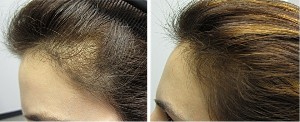So Histogen was likely the biggest joke in the history of anticipated hair loss treatments. Worse than Aderans and Intercytex. Worse than Aclaris. They fooled us twice over the course of 14 years since inception. Most companies (e.g., Kythera) fold their hair loss program or their entire operations much sooner.
Histogen Ends its HST 001 Program
In recent years, I essentially gave up on Histogen, but still wrote the further below clinical trial update post in February.
Now, per today’s news, we know that HST-001 is over once and for all.
“We will suspend development of this (HST-001) program. We believe the best business decision at this time is to redirect these resources towards our high value orthopedic programs.”
The only positive is that most readers did not have high hopes of Histogen’s hair loss treatment being that effective. So this is not a big disappointment, even if we did not expect such a sudden cessation.
I do wish I could get back the time I spent in writing over ten posts on the company since this blog began :-(
HST 001 Clinical Trial Update
Feb 16, 2021

In 2012, Histogen announced 24-week results from their Phase I/II clinical trial of their hair stimulating complex (HSC). This product is also known as HST-001 and used to treat male pattern hair loss.
In 2021, Histogen just announced 26-week results from their Phase 1b/2a clinical trial of HST-001.
HSTO for the Back to the Future win!
Mockery aside, CEO Richard Pascoe said that a larger clinical trial will commence in the second half of 2021.
It seems like the hair stimulating complex works well in growing some hair in men with androgenetic alopecia. However, just as with the week 18 results, the placebo group also witnessed similar increases in hair count. There were no significant issues with safety or side effects.
I cannot be bothered to find out if some in the placebo group were using any kind of hair loss treatments such as Minoxidil. Most likely, that would not be allowed.
Per Histogen’s website, the HSC contains growth factors including KGF, VEGF, and follistatin.
